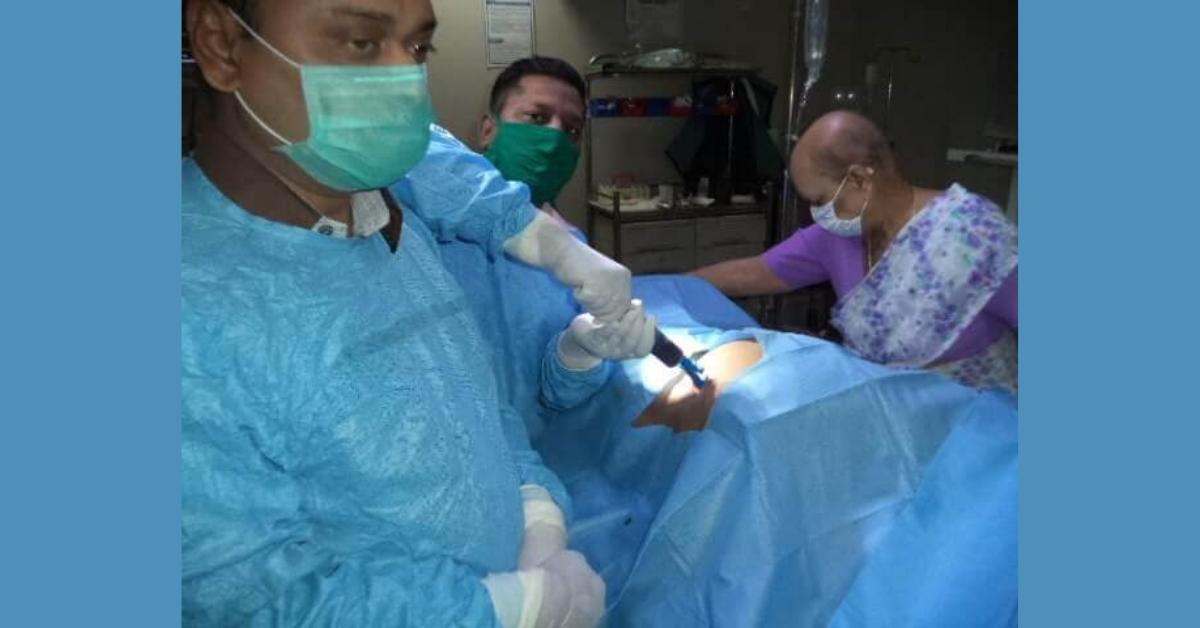Type 1 Diabetes Stem Cell Therapy in India: A Hopeful Breakthrough in Diabetes Treatment
Type 1 Diabetes Stem Cell Therapy India is a chronic condition that arises when the body’s immune system mistakenly attacks and destroys the insulin-producing beta cells in the pancreas. As a result, individuals with T1D are unable to produce insulin, requiring lifelong insulin therapy to manage blood sugar levels. While traditional treatments, such as insulin injections and insulin pumps, have provided relief, they do not cure the condition, and complications can still arise over time. This has led to significant interest in finding alternative solutions, one of which is stem cell therapy.
In India, stem cell therapy for Type 1 Diabetes is emerging as a promising treatment option that could offer hope to millions of people living with the condition. The science behind this approach involves using stem cells to regenerate or replace the destroyed insulin-producing beta cells, potentially leading to a reduction or even the elimination of insulin dependency.
Understanding Stem Cell Therapy for Type 1 Diabetes
Stem cells have the unique ability to develop into various types of cells in the body. In the context of Type 1 Diabetes, researchers aim to use stem cells to either regenerate the pancreatic beta cells or introduce new, healthy beta cells into the patient’s body. There are different types of stem cells that can be used for this purpose, including:
- Embryonic Stem Cells: These cells have the potential to become any cell type in the body, making them an exciting candidate for developing insulin-producing beta cells. However, ethical concerns and the risk of immune rejection remain challenges.
- Adult Stem Cells: These cells, typically obtained from a patient’s own body (autologous stem cells), offer a less controversial and more personalized approach. They can be reprogrammed to develop into beta cells.
- Induced Pluripotent Stem Cells (iPSCs): These are adult cells that have been genetically reprogrammed to revert to an embryonic-like state. iPSCs offer the advantage of being patient-specific and do not carry the same ethical concerns as embryonic stem cells.
Advantages of Stem Cell Therapy for Type 1 Diabetes
- Regeneration of Insulin-Producing Cells: The primary goal of stem cell therapy is to regenerate the damaged or destroyed beta cells in the pancreas, which would allow the body to produce its own insulin again. This could drastically reduce or eliminate the need for insulin injections.
- Long-Term Control: Stem cell therapy has the potential to offer long-term solutions to diabetes management, going beyond the temporary relief provided by insulin therapy. Some patients may experience a reduction in blood glucose levels for extended periods after the therapy.
- Reduced Risk of Complications: Managing blood sugar levels with insulin is challenging and requires constant monitoring. By regenerating beta cells, stem cell therapy could lead to more stable glucose control, thereby reducing the risk of complications associated with Type 1 Diabetes, such as neuropathy, kidney failure, and heart disease.
- Personalized Treatment: Since adult stem cells and iPSCs can be harvested from the patient’s own body, the therapy may be customized to fit each individual’s needs, potentially minimizing the risk of immune rejection.
Stem Cell Therapy in India: A Growing Field
India has become a leading hub for stem cell therapy research and treatment, with numerous medical centers and hospitals offering innovative solutions for Type 1 Diabetes. Several renowned hospitals in India are actively involved in clinical trials and research related to stem cell therapy for Type 1 Diabetes. India offers several advantages for patients seeking stem cell treatment:
- Affordable Costs: Stem cell therapy in India is more affordable compared to Western countries, making it accessible to a larger population. This is an important factor, as the cost of treatment can otherwise be prohibitive.
- Advanced Technology: Many Indian hospitals are equipped with state-of-the-art technology and are staffed with highly trained medical professionals specializing in stem cell therapies.
- Expertise in Stem Cell Therapy: India has a number of medical professionals and researchers who are pioneers in the field of stem cell research and regenerative medicine. This expertise is a key reason why people from around the world travel to India for stem cell treatments.
The Future of Type 1 Diabetes Stem Cell Therapy in India
While stem cell therapy for Type 1 Diabetes is still in the experimental stages, ongoing clinical trials and research are bringing us closer to a potential breakthrough. Researchers are optimistic about the long-term potential of stem cell-based therapies to cure Type 1 Diabetes or at least significantly reduce the need for insulin therapy.
However, there are still challenges to overcome, such as ensuring the safety and effectiveness of the therapy, minimizing the risk of immune rejection, and scaling up the treatment to a wider population. As research continues, it is hoped that advancements in stem cell technology and immunosuppressive therapies will make stem cell treatments more viable and accessible for patients with Type 1 Diabetes.
Conclusion
Stem cell therapy for Type 1 Diabetes represents a promising frontier in medical science, offering hope to those who have long lived with the challenges of this condition. In India, the combination of cutting-edge research, affordable treatment options, and expertise in regenerative medicine makes it an attractive destination for those seeking innovative solutions for Type 1 Diabetes. While the therapy is still evolving, its potential to transform the treatment landscape is undeniable, offering hope for a future where Type 1 Diabetes can be effectively managed or even cured.







